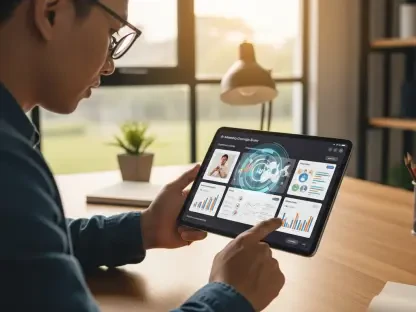Choosing the right Customer Relationship Management (CRM) software is crucial for small businesses aiming to streamline operations, enhance customer relationships, and drive growth. With numerous options available, it can be challenging to determine which CRM best suits your business needs. Evaluating different CRM software tailored specifically for small businesses can aid in selecting the ideal solution. This article highlights top CRM systems such as vcita, Zoho CRM, HubSpot, Pipedrive, and Monday, focusing on their features, benefits, and scalability to ensure small businesses can make an informed decision.
Importance of CRM for Small Businesses
Customer Relationship Management (CRM) software is essential for small businesses to manage customer interactions, data, and processes efficiently. A good CRM system helps businesses keep track of customer information, streamline communication, and improve customer satisfaction. By centralizing customer data, businesses can gain valuable insights, personalize marketing efforts, and ultimately drive sales growth. This centralized approach transforms customer interactions into actionable strategies that bolster customer loyalty and boost retention rates.
Moreover, CRM software can automate repetitive tasks, freeing up time for small business owners to focus on core activities. Integration with other business tools ensures seamless workflows, enhancing overall productivity. For instance, automated scheduling and email marketing save valuable time, allowing the business to focus on creative and strategic tasks. As small businesses grow, a scalable CRM system can adapt to evolving needs without requiring a switch to a different solution. Scalability ensures that your investment in CRM grows alongside your business, preventing future incompatibility issues and extra costs associated with transitioning to new software.
Key Features to Look for in a CRM
When selecting a CRM for your small business, it’s important to consider key features that will support your operations and growth. Look for a CRM that offers robust contact management, allowing you to store and organize customer information in a centralized platform, making data access and updates straightforward. Effective lead tracking and sales pipeline management are also crucial for monitoring potential customers and closing deals efficiently. These features ensure that every customer interaction is captured and utilized to drive sales and foster meaningful relationships.
Ease of use is another important factor. Small business owners often prefer solutions that do not require extensive training or technical expertise. An intuitive interface and easy navigation can significantly reduce the learning curve and ensure that your team can quickly adopt the CRM system without extensive training sessions. Additionally, integration capabilities with existing business tools, such as email and calendar applications, are paramount. Seamless integration prevents workflow disruptions and enhances overall efficiency by allowing data to flow effortlessly between platforms, providing a coherent view of customer interactions.
vcita: All-in-One Solution
vcita stands out as an all-in-one CRM solution specifically designed for small businesses. It combines customer relationship management, scheduling, invoicing, and marketing automation in one platform. This comprehensive approach ensures that all customer information, interactions, and notes are easily accessible, streamlining business operations. vcita’s design focuses on providing small businesses with a consolidated and seamless user experience.
Key features of vcita include contact management, online scheduling, invoicing and payments, marketing automation, and a mobile app. Customers can schedule appointments online, generate professional invoices, receive payments, and create automated email campaigns. This integration of different functions into a single platform enhances the overall efficiency and effectiveness of business operations. The mobile app allows business owners to manage their CRM from anywhere, enhancing flexibility and productivity. Remote accessibility is crucial for small business owners who need to manage their operations on the go, providing them with real-time updates and control over their business processes.
Zoho CRM: Simple and Effective
Zoho CRM offers a simple, easy-to-navigate platform suitable for even the smallest businesses. It provides tools for lead and contact management, sales forecasting, auto email marketing, workflow automation, social media management, and a mobile app. This CRM makes managing leads and contacts straightforward by consolidating all necessary information on a single page, offering a clear and concise overview of customer interactions. Zoho CRM’s streamlined approach to data management ensures that vital customer information is always accessible, leveraging insights for better decision-making.
Sales forecasting tools in Zoho CRM employ artificial intelligence to predict future trends, helping businesses make informed decisions. Personalized email marketing and workflow automation reduce redundancy and ensure efficient communication with customers. These features allow businesses to automate and personalize their interactions with customers, fostering deeper connections and enhancing customer satisfaction. Social media management tools track activities and communication across various networks, providing a comprehensive view of customer interactions. By utilizing these tools, small businesses can maintain a coherent and unified presence across multiple social platforms, enhancing their brand’s visibility and engagement.
HubSpot: User-Friendly and Comprehensive
HubSpot is recognized for its user-friendly interface and extensive feature set aimed at small businesses. The core features include contact management, lead tracking, email marketing, social media integration, sales pipeline management, and real-time reporting and analytics. HubSpot’s free plan and affordable paid versions make it accessible while offering robust functionalities. This makes HubSpot an attractive option for small businesses seeking a powerful yet budget-friendly CRM solution.
Contact management in HubSpot consolidates interactions, deals, and tasks, providing a clear and accessible overview of customer relationships. Lead tracking helps identify patterns in website visitors and potential leads, enabling targeted marketing efforts. HubSpot’s ability to track and analyze visitor behavior empowers businesses to refine their marketing strategies continuously, ultimately leading to higher conversion rates. Email marketing capabilities include targeted and drip campaigns, while social media management and sales pipeline tools offer a cohesive overview of all business activities. These features ensure that all aspects of customer engagement are streamlined into a unified strategy, driving business growth efficiently.
Pipedrive: Minimalist and Efficient
Pipedrive is appreciated for its minimalist design and ease of use, appealing to small businesses and teams who prefer a straightforward CRM without complex configurations. Its key features include contact and deal management, email integration, sales reporting, customizable dashboards, team collaboration, and integration with other business tools like Google Apps and Trello. Pipedrive’s minimalist design focuses on simplifying the user experience while maintaining powerful functionalities.
Pipedrive’s visual pipeline view simplifies the management of contacts and deals, ensuring visibility and transparency. This visual approach allows teams to track progress easily and identify bottlenecks in real-time, enhancing overall sales efficiency. Email integration consolidates client communication, while sales reporting provides insights into sales performance. Customizable dashboards offer tailored overviews, and team collaboration tools facilitate task assignment and note sharing, enhancing team efficiency. By fostering a collaborative environment, Pipedrive ensures that all team members are aligned with the business’s sales objectives and strategies.
Monday: CRM and Project Management Combined
Monday doubles as a CRM and project management tool, built on the concept of customizable boards for managing leads, contacts, deals, and tasks. Features include customizable pipelines, automation, communication tools, advanced reporting, and integrations with popular tools like Salesforce, Jira, and Slack. Monday’s integrated CRM and project management capabilities provide small businesses with a versatile platform that covers multiple aspects of business operations effectively.
Its flexible pipeline creation allows businesses to tailor workflows to their specific sales processes. Automation features streamline repetitive tasks, enhancing efficiency and allowing team members to focus on more strategic activities. Built-in communication tools enhance team collaboration, facilitating effective communication and task delegation. Detailed reports on team performance and deal progress assist in tracking and enhancing sales efforts, making Monday a versatile choice for small businesses needing both CRM and project management capabilities. The synergy between CRM and project management in Monday ensures that small businesses can manage every aspect of their operations cohesively and efficiently.
Main Findings and Recommendations
The synthesized information reveals that small businesses have multiple robust CRM options available, each catering to different needs and preferences. Based on the detailed evaluation, the following recommendations can guide small businesses in choosing the most suitable CRM software:
- vcita is ideal for businesses looking for an all-in-one solution with strong scheduling, invoicing, and marketing automation features.
- Zoho CRM excels at lead and contact management with a focus on sales forecasting and email marketing, making it suitable for businesses prioritizing these aspects.
- HubSpot offers a well-rounded, free-to-start CRM that scales with the business, perfect for those needing comprehensive contact management and lead tracking.
- Pipedrive is suitable for businesses seeking simplicity and efficiency without the need for complex configurations.
- Monday serves businesses needing both CRM and project management, providing customizable workflows and extensive reporting capabilities.
Each of these CRM systems has been designed with the small business owner in mind, offering the necessary tools to manage customer relationships effectively while supporting growth and scalability. It’s important for small businesses to assess their unique needs and operational goals before making a final decision.
Conclusion
Selecting the appropriate Customer Relationship Management (CRM) software is vital for small businesses aiming to enhance efficiencies, strengthen customer relationships, and foster growth. Given the myriad of options available, it can be daunting to identify the CRM system that aligns best with a business’s specific needs. Evaluating CRM software options tailored for small businesses can assist in making the right choice. Key CRM systems like vcita, Zoho CRM, HubSpot, Pipedrive, and Monday stand out for their features, benefits, and scalability, making them worth considering. These platforms offer a range of tools designed to help small businesses manage customer interactions, track sales, and automate various processes. By examining what each of these systems offers in terms of usability, customization, and integration with other tools, small businesses can make an informed decision. This ensures they invest in a CRM that will not only meet their current needs but also support future growth and adaptation.









